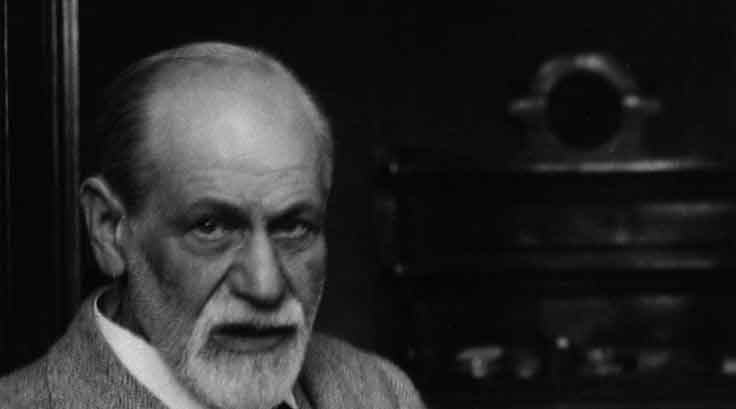Sensory pleasure
Sir — Sigmund Freud used the term, osphresiolagnia, to describe pleasure derived from smells. None will understand this better than a book lover; the enticing scent of a book, old or new, is heady. One can get a whiff of this intoxicating aroma in school libraries or while leafing through the pages of a second-hand book from the stalls at Calcutta’s boipara or even while rearranging one’s bookshelf. Unfortunately, this sensory pleasure is hard to experience these days as e-books take over the market. Reading books on Kindle cannot compare to the magical experience of cracking open a book. Is it any wonder then that perfume companies spend lakhs trying to bottle the smell of a book?
Jhuma Basak,
Calcutta
Not enough
Sir — It is heartening that the Centre has made all adults eligible for the booster dose of Covid-19 vaccines (“Private booster jabs for adults”, April 9). So far, it had been available only to people in the high-risk category like the elderly and front-line workers. The pandemic is far from over — newer, more contagious, variants of the coronavirus are emerging every few months.
However, the decision to make the booster shots available only through the private sector raises concerns. A majority of the current beneficiaries have taken the first two doses of the vaccine free of cost at government hospitals. A large part of the population lives below the poverty line and cannot afford the vaccines. It is the government’s duty to ensure that everyone has access to healthcare.
Khokan Das,
Calcutta
Sir — The two vaccine manufacturers in India, the Serum Institute and Bharat Biotech, announced a reduction in the price of the jabs just before the roll-out of the third dose (“Booster jab cost cut, cry on equity”, April 10). Both Covishield and Covaxin are now available for Rs 225. The slash in pricing is nothing but another instance of profiteering. Pharma companies have already reaped billions from the vaccines. The jabs must be delivered without a profit margin if they are concerned about the poor.
Chandan Sinha,
Calcutta
Sir — The Centre’s policy of paid booster shots will leave a large section of the population under-vaccinated. This is not the only worry. The fact that intensive studies have not been conducted on the efficiency of the booster shot or even if it is needed for everyone is cause for concern too.
Venu G.S.,
Kollam, Kerala
Unfair imposition
Sir — The Union home minister, Amit Shah, has suggested the use of Hindi as an alternative to English at the 37th meeting of the Parliamentary Official Language Committee. His remark that the time has come to make Hindi the official language of India has revived fears about the implementation of the ‘one nation, one language’ policy — a pet project of the Bharatiya Janata Party. It is disconcerting that Shah made a proposal that has been opposed by several states. In fact, the Official Languages (Amendment) Act in 1967 iterated that the language of communication among the non-Hindi-speaking states must be English. The move to unilaterally alter this provision without the approval of Parliament and prior consultation with stakeholders is an attack on the pluralistic ethics of this country.
S.K. Chowdhury,
Bangalore
Sir — The Union home minister’s push to make Hindi the official language of communication has rightly been condemned by the northeastern states (“NE voice against ‘Hindi imposition’”, April 10). In a country where each state has its own languages and dialects, it is impossible to make Hindi the link language. Moreover, since English is the most commonly-used language in the corporate sector, such a move is bound to hinder employment opportunities. At a time when the country is facing multiple challenges, the pitch for Hindi appears to be nothing more than a diversionary tactic by the BJP.
S.S. Paul,
Nadia
Right turn
Sir — The results of the first round of the French presidential elections show that France has moved past its democratic history and is embracing conservatism. Although the incumbent, Emmanuel Macron, has won the first round, the emergence of Marine Le Pen, a far-Right candidate, as the principal challenger consolidates this shift. It also signals the rise of Right-wing politicians across Europe amidst Russia’s attempt to overrun Ukraine’s sovereignty. If Le Pen wins the election, the primary concern would be whether France decides to follow Britain out of the European Union.
Jang Bahadur Singh,
Jamshedpur
Protective law
Sir — Ecuador must be lauded for becoming the first country to accord legal rights to wild animals. The bold initiative will ensure better protection of fauna and prevent their exploitation. The judgment came after the country’s top court heard the case of a woolly monkey, Estrellita, who was taken from the wild and was raised as a pet but died within a month after it was shifted to a zoo. This is inhumane. The court’s decision will, hopefully, encourage other countries to do the same.
Vijay Singh Adhikari,
Nainital
Parting shot
Sir — It was exciting to learn that the former World No.1 in tennis, Ashleigh Barty, is set to release a children’s book series titled, Little Ash, which will be based on her real-life experiences on and off the tennis court. Barty’s fans cannot wait for another chapter in her multifaceted career.
Sourish Misra,
Calcutta










